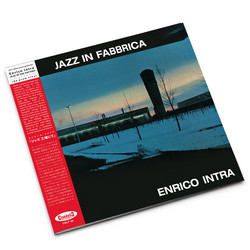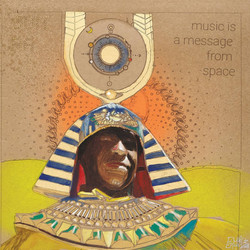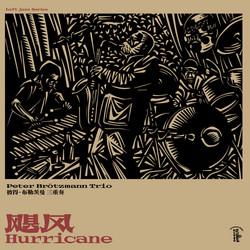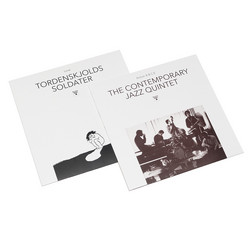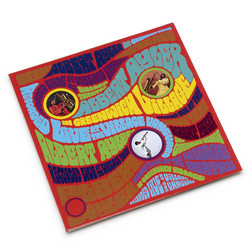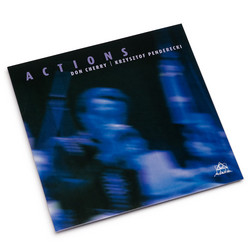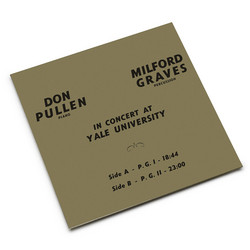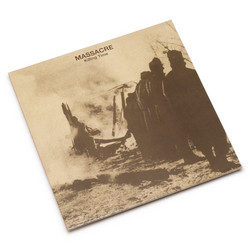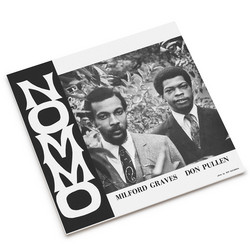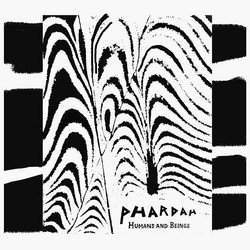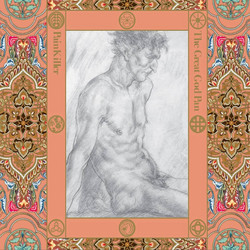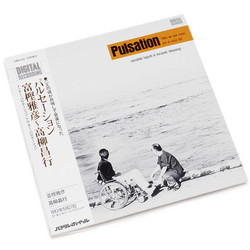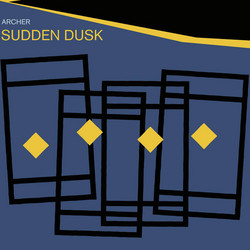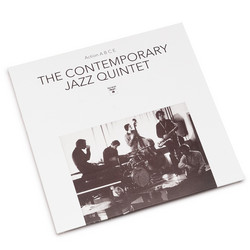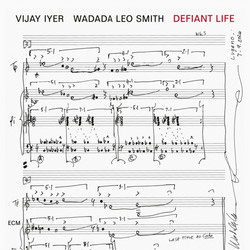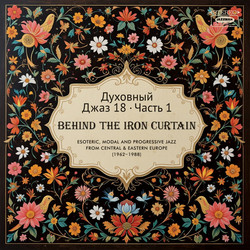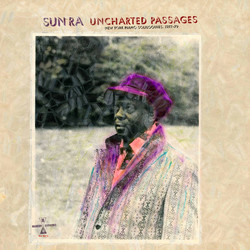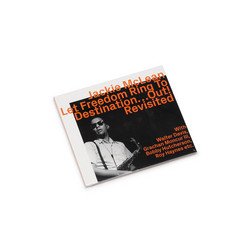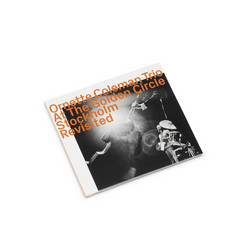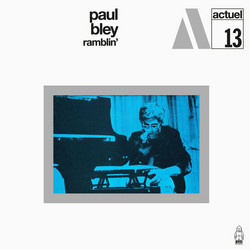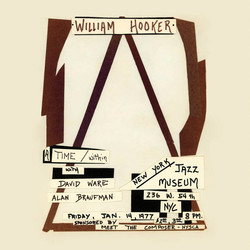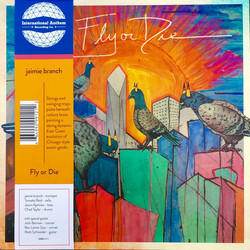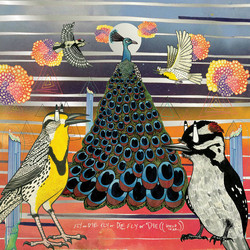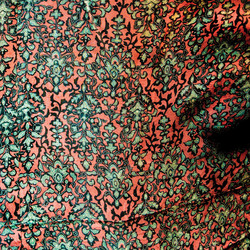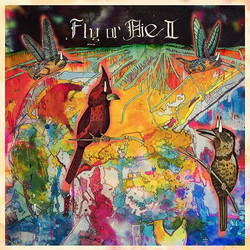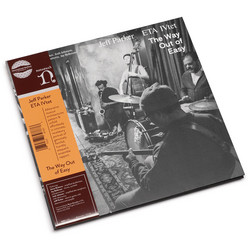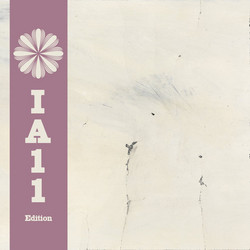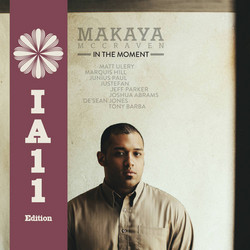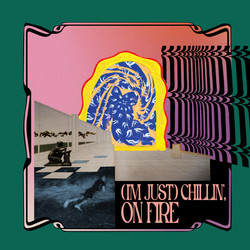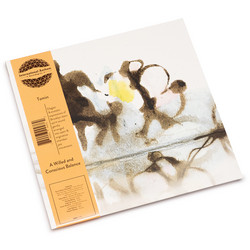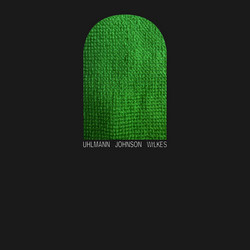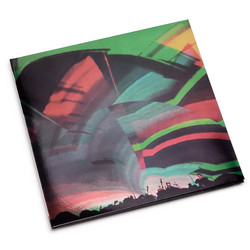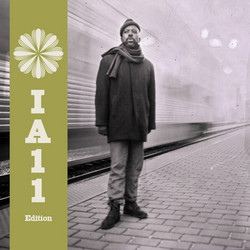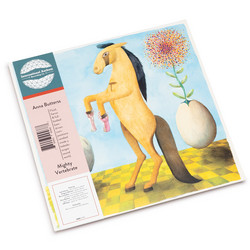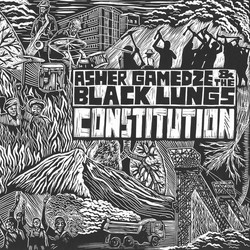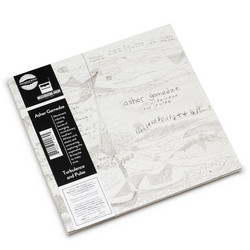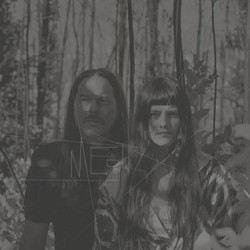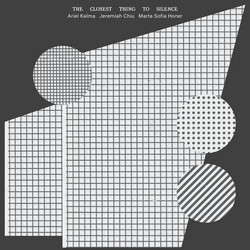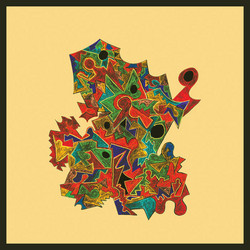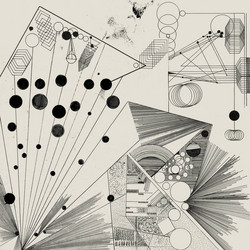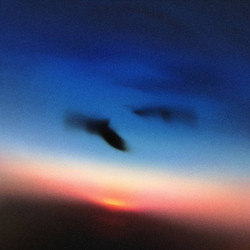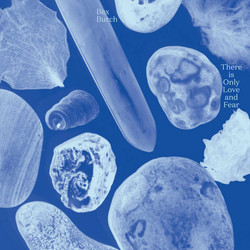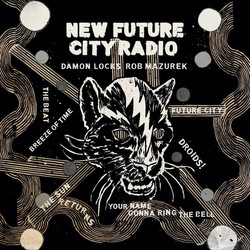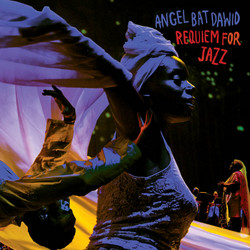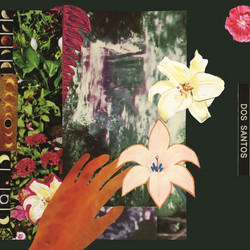We do require your explicit consent to save your cart and browsing history between visits. Read about cookies we use here.
Jaimie Branch
Fly or Die Live (2LP)
Capturing a pre-Covid performance (just weeks before the pandemic really hit) in Switzerland, composer, trumpeter and singer Jaimie Branch has just released an incredible live album via International Anthem. Recorded in January 2020 at Moods in Zurich, and features live versions of tracks from Branch’s Fly Or Die Live I and II, compounded & flawlessly communicated in a singular epic of raw cosmic brilliance. It sees Branch on trumpet and vocals, Chad Taylor on drums and mbira, Lester St. Louis on cello and percussion, and Jason Ajemian on bass and vocals.
jaimie branch - trumpet, vocals, vibraslap Lester St. Louis - cello, vocals, tiny cymbal Jason Ajemian - bass, vocals, egg shakers Chad Taylor - drums, mbira Recorded Live at Moods, Zurich, Switzerland, 1/23/2020
Engineered by Thierry Looser Mixed by Dave Vettraino Mastered by David Allen Two *limited edition* 160-gram BLACK color vinyl LPs (pressed by Smashed Plastic in Chicago) inside a deluxe spot-glossed *gatefold jacket* with IARC obi strip, insert sheet, and dome-patterned inner-sleeves.
Jaimie Branch wants to hear music that breathes. The trumpeter-composer out of Chicago, and now based in New York, presents strong musical concepts primed for exploration and peer input.
With each release, Branch taps into unrestrained experimentation, preferring to conjure compositions, rather than write them down and count them off. The practice of letting music reveal itself relates to every facet of her work, from rhythmic ideas to composition.
“Everybody has their own personality when it comes to time,” Branch said. “That’s something I love about jazz. Instead of bars, I think in beats—of everything as in 1. [It’s] like there’s a really fast metapulse. It’s always happening. Within that, you have these gigantic, slow beats.”
Because Branch’s approach to music encourages a multitude of interpretations from bandmates, she draws on myriad techniques for writing charts. “The way your compositions look is going to affect the way your band approaches them,” she said. The first Fly Or Die sessions, which were released through Chicago’s International Anthem in 2017, included what Branch considers traditional notation, graphic notation and illustrations. For her second full-length—Fly Or Die II, due out Oct. 2—she introduced color.
Similar to the way chewing gum while studying and subsequently taking an exam is said to help students recall information, Branch thinks the color-coded charts can help her bandmates recall sections of music. “I wanted to see what happened if the band is seeing yellow,” she said. “When they’re playing, they can kind of remember the next thing that’s coming up as blue.”
On the road, Branch and her ensemble have nurtured a strong musical connection, and in the studio, she values their collective ability to engage in dialogue. “Coming up on the Chicago scene,” she said, “there’s a shared vocabulary and knowledge of jazz. There’s also a whole separate shared vocabulary of Chicago improvised music.”
Beyond vocabulary, her collaborators appreciate the bandleader’s depth of expression. “Jaimie is a visionary,” said Chad Taylor, who played drums on both of Branch’s releases and was a Chicago mainstay for years in a cohort of performers that included multidisciplinary artist Rob Mazurek. “I’m not talking about being pioneering or cutting-edge, but more about her process. She envisions what feelings she wants to evoke with her music and then shapes and writes music to accomplish these goals.”
Fly Or Die II initially came together in London, where her central quartet spent one day in the studio reviewing charts and working out ideas, then two nights playing live. “We played the whole record twice,” said Branch, who also flexes her singing voice on two tracks of the new album. Following the London sessions, the bandleader then enjoyed two additional days in the studio for recording and overdubs.
Something of a purist, Branch tends toward a limited production approach, but spent significant time producing the tracks “twenty-three n me, jupiter redux” and “nuevo roquero estéreo.” Finding the former to be “slightly anemic” compared to others works on the album, she returned to Chicago to add synths, layered trumpets, “alien chatter” and a tambourine. “I wanted to take the tune and put it in a different environment,” she said. “So, [now it’s] a free-jazz band playing in an alien space bar.”
Engaging demons—namely substance abuse—long has shadowed many an artist’s creative process. And Branch has been open about her experience with addiction, despite misgivings of potentially glorifying heroin use. Throughout her recovery, she’s experienced certain revelations. There’s one in particular that she considers worth sharing with others.
“I think there’s a fear when you put down heroin that, ‘Now my music is going to be gone, too,’” she said. “But it became clear that the drugs were actually hindering the creative process. It’s not like, you stop using drugs and all your problems go away. But the music didn’t go anywhere. And I think I was really scared it would.”
With each new project, Branch remains true to her take on music, sound and expression—and her invitation to openness. “I don’t have major concerns about people nailing things,” she said. “That’s just not that interesting to me. I’d rather hear what people can do when they can breathe with it.”
As the credits begin to (hopefully) roll on this woeful pandemic, people—fully vaccinated or not, and very foolishly in any case—are still getting chesty in the US about things like mask protocols and even the existence of the virus.
The rise of such careless, Trump-ish rhetoric makes it an opportune moment for Brooklyn-based composer, trumpeter, multi-instrumentalist, and vocalist Jaimie Branch to collect her flowers, and some checks too. Remember the way she boldly spoke out against the Orange One during his reign of terror? It’s time to revisit those moments with the release of her January 2020 Zurich live recording FLY or DIE LIVE (available now in digital form, and on vinyl and CD come July 31.)
Here we have a whole ass mood, vibration, and frequency. The LP fuses the rhapsodic and sobering moments of Branch’s two previous studio projects into a cohesive atmosphere, built with klezmer upswings, bluesy testimonials, and bombastic electronic warmth. Its sounds reflect the persevering spirit, where dark eventually succumbs to the light.
The album was released last week on International Anthem, the same imprint that’s put out next-level records from Jeff Parker, Makaya McCraven, Irreversible Entanglements, Damon Locks’ Black Monument Ensemble, Angel Bat Dawid, Ben LaMar Gay, and numerous others. FLY or DIE LIVE reminds everybody that Branch, along with her ace quartet of Jason Ajemian, Lester St. Louis, and Chad Taylor earned prize fighter status when she stood up and represented for the culture while this country was kidnapped by a different type of virus following Trump’s 2016 presidential election.
Many of the people who were witnessing treason in action during those times waited for hip-hop, rock, electronic music, emo, new country, or any of the top-grossing genres of music to publicly say something in outrage. But once again it was the jazz musicians speaking the truth.
On “prayer for amerikkka pt 1 & 2” and “love song,” Branch sings not for show, but to convey grit, disgust, and perseverance in the throes of adversity. She connects with her Chicago blues side, as fellow musicians testify in the background, house of God style. During “love song” she asks the crowd to help her sing. It’s highly entertaining to hear these strong Swiss accents enunciate that, “it’s a love song for assholes and clowns.’’
f the world can agree on one thing, it’s that 2020 was not our best year on record. For former Chicagoan Jaimie Branch, it should’ve been a time of triumph for her current quartet, Fly or Die. The group were riding the wave of a splendid sophomore LP, where Branch added vocals with tragically topical antifascist themes to her adroit trumpet playing, and from its release in October 2019 right up to the week that lockdowns began, they’d toured tirelessly to support it. This double live album, recorded in January 2020 in Zurich, Switzerland, proves that the band had reached a point where they couldn’t go wrong; even if one musician flubbed a note, another would turn it into a great new idea. Drummer Chad Taylor sustains an endlessly variable stream of life-giving grooves, even as he engages in inspirational interplay with whoever is soloing. Cellist Lester St. Louis and double bassist Jason Ajemian both play thrilling solos, but they also come together to form what sounds like a four-handed organism capable of juggling bluesy strumming, arcing lines, and intricate rhythms. Branch’s banter is charged enough to break the Swiss audience out of their alleged neutrality, and they cheer her as she castigates fascism, racism, apathy, and closed borders around the world during “Prayer for Amerikkka.” Her trumpeting sounds equally capable of starting fires, jumping like lightning among intricate rhythmic figures, electronically magnified growls, and stark, dramatic statements. Fly or Die were already blowing space junk out of their path before COVID-19 grounded them; who knows how much higher the combo will soar as the world opens back up?
When someone does something unusual, critics immediately try to pigeonhole it and hardly anywhere are unfamiliar sounds so quickly and crudely labeled as in jazz, a genre which is actually based on improvisation and freedom. Jaimie Branch’s band Fly Or Die has been one of the most talked-about projects in recent years and very quickly the media called their music punk-jazz.
That’s okay for Branch, in an interview with the German weekly “ZEIT“ she said that she used to be a punk rocker and that she appreciated the love in this kind of music. However, some people envied her immediate success. After her first appearance in Germany, at Jazzfest Berlin, she entered the stage in a tracksuit in November 2018, only to thoroughly rouse the more contemplative part of the audience with her trumpet. Thereupon, some critics - all male, by the way - nagged about her scruffy, sloppy tone. It didn’t occur to them that this might be intentional. Her latest album Fly Or Die Live breathes this exact Berlin gig spirit. It’s a concert recording, one-and-a-half hours, from the Moods jazz club in Zurich, recorded on January 23, 2020, shortly before the music world shut down due to Covid. When she hit the stage like a rapper, she nervously rearranged her base cap, announced that the band was going to play just one 90-minute set instead of two shorter ones, and encouraged the audience to yell, shout, applaud or get drinks because they were "not one of those quiet bands." The Fly Or Die band of the Zurich evening are Branch (trumpet, vocals, vibraslap), Lester St. Louis (cello, vocals, tiny cymbal), Jason Ajemian (bass, vocals, egg-shakers) and Chad Taylor (drums, vocals, mbira). Fly or Die Live is like a summary of the band’s two studio albums, dipped into the intensity of a live show. At the beginning, the musicians takes their time.
Chad Taylor plays a long intro on the mbira, the sub-Saharan thumb piano that originally was used to help connect with ancestors during ceremonies. It’s like the evocation of a paradisiacal state from which one has been expelled. The sound is bouncy and soft, multi-layered; it opens the ears. It takes three minutes for the trumpet to appear. Branch’s sounds is warm and full. She plays brightly and fast, the restrained reverberation almost reminds me of Miles and Chet Baker. Yes, she can play like this as well, but she also has her signature sound. And this becomes clear in the next piece, when the whole thing tips over. “Prayer for Amerikkka Parts 1&2“ certainly is Branch's most important piece, an angry blues in which she screams out all her anger, as on the studio version, sometimes her voice even flipped that night. The trumpet riffs here range from heart-felt blues melodies to improvisations over Phrygian chords, bridging the gap to Mexican mariachis. And, of course, this is a musical commentary on the situation in the U.S.A. under Donald Trump. How could you play that with a clinically pure, nice and beautiful trumpet sound? This has to be dirty, and that’s the Jaimie Branch style.
Then again, to bring her playing to the one point is difficult. Sometimes it’s wide-meshed, sometimes snappy, her compositions sound always up-to-date. “To have a good sound, you always have to sound good,“ she says in the ZEIT interview. "I spent a lot of time playing long tones, and I still do. I love resonance and fullness. But there can't be 2500 John Coltranes. To me, that sounds hollow. If someone plays like Albert Ayler, it doesn't mean they sound like Albert Ayler." That's why it has been important to her to find her own voice, to formulate her vocabulary - and she’s definitely done that. Moreover, she benefits from her band, which colors her sketches. They provide an elastic-drifting rhythm carpet on which Branch’s melodies can fly, whether it’s on more contemplative pieces like “Waltzer“ or tightly knit numbers like “Leaves of Glass“. The set closes with three longer pieces around the seven-minute-mark. Here they simply rock the house and once again keep the promise from the beginning that they are not a quiet band. The audience even sings along at the end in "Love Song" - all that feels very natural, it’s not embarrassing at all. And for a last time Branch’s trumpet is delightfully unclean, she enjoys being very slightly off-key. Coming back to labels: Her approach might be a bit punk-like, but it also draws a lot of hiphop’s energy. But why categorizing her? She’s just a great musician. One of jazz’s rising stars, that’s for sure.
Related products
More by Jaimie Branch
More from International Anthem Recording Company
Become a member
Join us by becoming a Soundohm member. Members receive a 10% discount and Free Shipping Worldwide, periodic special promotions and free items.
Apply hereSoundohm is an international online mailorder that maintains a large inventory of several thousands of titles, specialized in Electronic/Avantgarde music and Sound Art. In our easy-to-navigate website it is possible to find the latest editions and the reissues, highly collectible original items, and in addition rare, out-of-print and sometime impossible-to-find artists’ records, multiples and limited gallery editions. The website is designed to offer cross references and additional information on each title, as well as sound clips to appreciate the music before buying it.
Soundohm is a trademark of Nube S.r.l.
